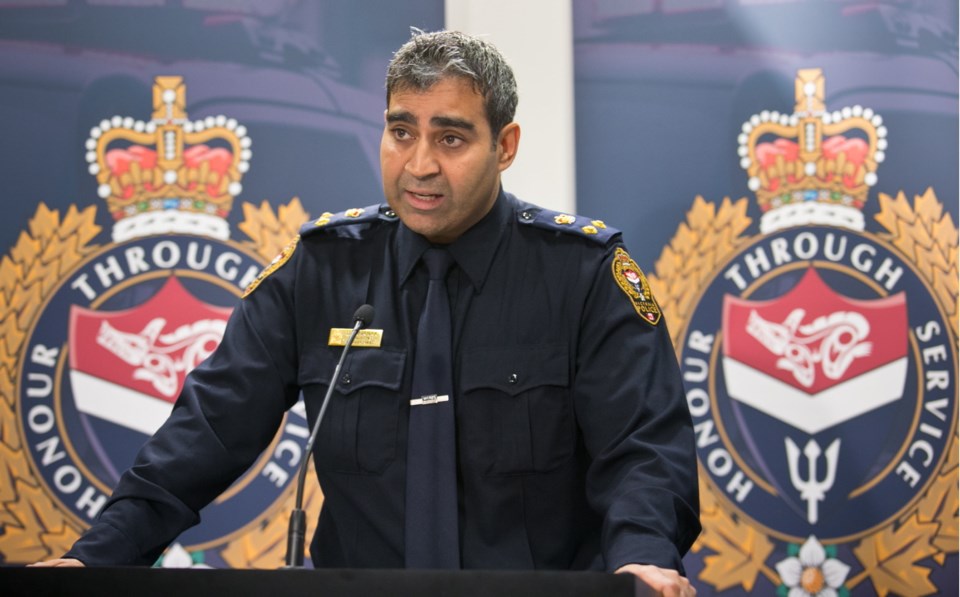Victoria city councillors are debating whether hiring police officers to deal with mental-health issues represents a proactive approach or treats people who are mentally ill as inherently dangerous.
Victoria police are asking for $240,141 to fund the new positions, part of a $2.2-million increase from this year’s budget of about $50.8 million. About $1.38 million of the budget bump comes from increased salary and benefits to existing staff
The City of Victoria pays 85.3 per cent of the police budget, while the Township of Esquimalt pays 14.7 per cent.
The officers would help the region’s four Assertive Community Treatment teams, integrated units in which nurses, psychiatrists, outreach workers, social workers and police officers manage people with mental illness and addiction living in the community.
One officer currently assists all four teams. Del Manak, VicPD’s acting chief, told councillors on Monday that each team serves about 80 clients — meaning one police officer is helping with 320 clients.
Manak said part of the force’s larger mental-health strategy is helping people before they have a crisis. He said he would like to see one Victoria police officer on every ACT team.
Coun. Charlayne Thornton-Joe said statistics show clients who engage with the teams have fewer contacts with police.
“The prevention work costs way less than dealing with things in the middle of a crisis,” she said, adding that police work must include building trust and making connections, not just arresting people.
Coun. Jeremy Loveday said outreach workers sent letters of support endorsing hiring two new officers, but noted that clients served by the ACT teams have not been asked to weigh in.
“I think we need to stop thinking of people with mental-health issues as inherently dangerous, as inherently a threat to public safety,” he said.
The Victoria police budget represents the single largest local government expenditure on Vancouver Island, Coun. Ben Isitt said, adding that the department should deploy two officers from its existing complement of 243 sworn members.
“I think there’s an opinion that we’re over-policed in the context of declining crime rates and increased supports for street-involved people,” Isitt said, referencing additional supportive housing projects and the temporary drug overdose prevention sites.
He said some tasks carried out by the officer on ACT teams — such as helping a hoarder clean out his apartment and transporting clients to medical appointments — should be done by cleaners or social workers.
Victoria Mayor Lisa Helps disagreed. “In the middle of the night, no one is going to call a social worker … or a cleaner,” she said. “People are going to call the police.”
Coun. Geoff Young said council has promised Victoria residents that taxes will not rise beyond inflation plus one per cent, and that funding these officers would break that pledge.
If the city covers costs that should be carried by Island Health, it will continue to shoulder a disproportionate burden of mental-health issues in the region, he said.
Helps said the city is lagging behind other municipalities that see the benefit in pairing police with social workers.
Councillors deferred their vote on the new officers until Jan. 26 to allow the public to weigh in.



